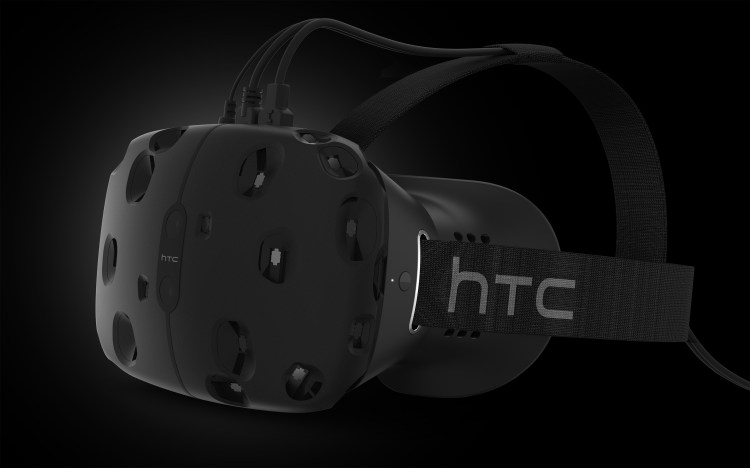HTC and Valve were supposed to kick off the virtual reality revolution this year with the Vive VR headset, but now the device isn’t even coming out in the first quarter of next year.
The Taiwanese hardware manufacturer announced today that it will release the Vive in April, according to a blog on the company’s website. That is when consumers will finally get a chance to buy the device. This comes after the company delayed the Vive’s released date from “before the end of 2015” to “next year.” HTC is also saying, however, that it will make 7,000 headsets available to developers before the official launch.
The April release date officially puts the Vive behind the Oculus Rift, which Oculus VR still plans to release sometime between January and March. And it’s possible that Sony could release its PlayStation VR peripheral for the PlayStation 4 before April as well.
HTC may have delayed the Vive because it cut around 2,900 jobs in August. That amounts to more than 15 percent of its workforce.
“We remain committed to delivering the HTC Vive to a broader group of content creators and partners, and remain focused on delivering the very best experience possible for a consumer release,” reads the HTC blog. “Since announcing the HTC Vive in March of this year we have focused on developing immersive content, refining both hardware design and user experience, and building relationships with new partners both inside and outside of the gaming industry. In collaboration with Valve, we have been distributing the HTC Vive Developer Kits to developers and content creators, and are continuing to work with many other innovative companies to create content that spans gaming, entertainment, medical, education and retail.”
Moving forward, HTC is planning to hold a Vive developers conference in Beijing on December 18. After that, the company will roll out a new developers kit at the Consumer Electronics Show in early 2016. Following that reveal, HTC will attend events — like Sundance, SXSW, Game Developers Conference, and Mobile World Congress — to demo the technology.
“We are incredibly excited about the future and look forward to sharing more information as we move forward towards launch,” reads the blog.
VentureBeat's mission is to be a digital town square for technical decision-makers to gain knowledge about transformative enterprise technology and transact. Learn More

